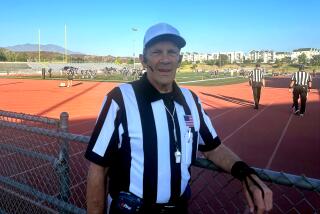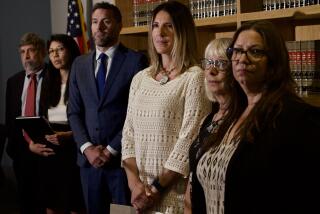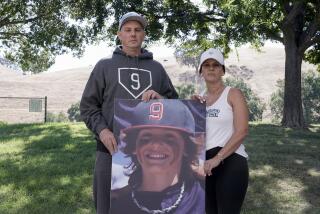Football coach’s on-field prayer not protected by Constitution, appeals court rules
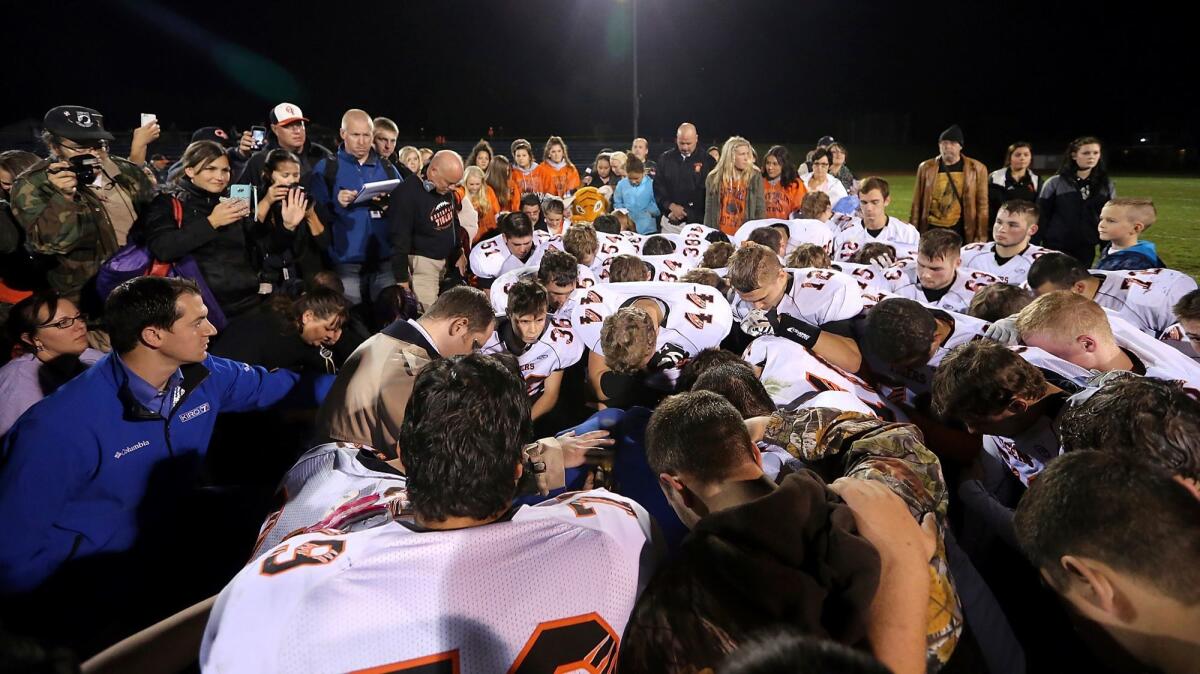
A Christian football coach suspended for kneeling and praying on the 50-yard line after high school games Wednesday lost a bid to be reinstated and allowed to worship in front of students.
A three-judge panel of the U.S. 9th Circuit Court of Appeals said that Bremerton, Wash., High School football coach Joseph A. Kennedy was serving as a public employee when he prayed in front of students and parents immediately after games, and the school had the right to discipline him.
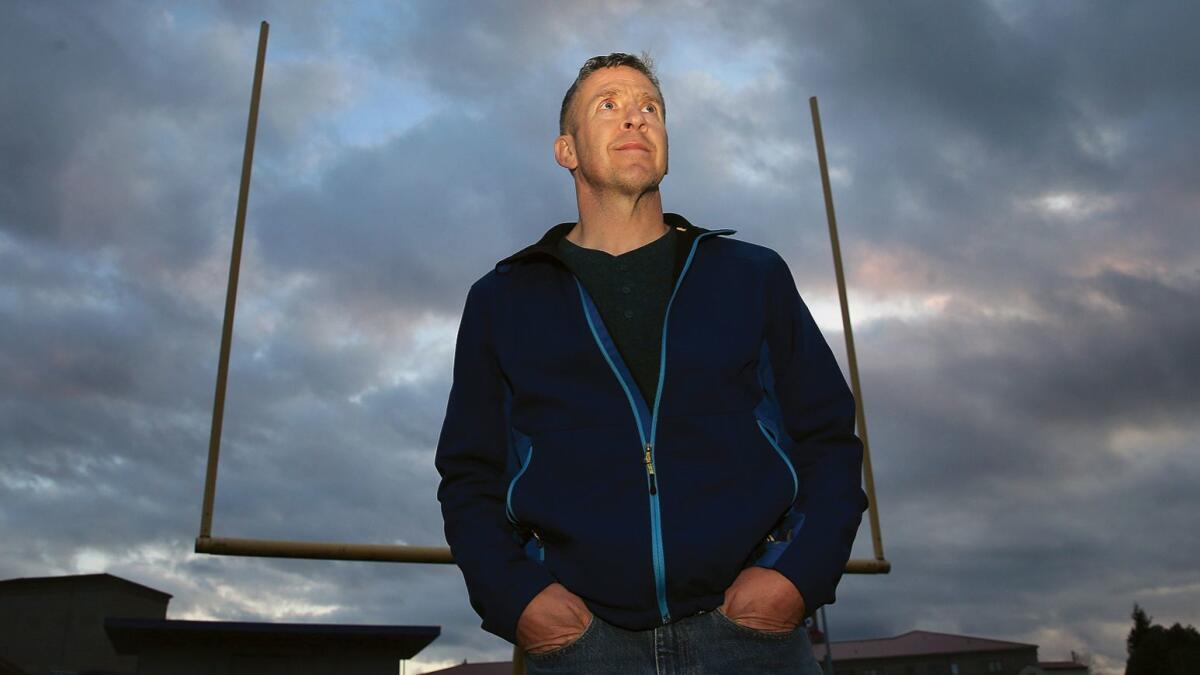
The Bremerton School District, located in Kitsap County across Puget Sound from Seattle, serves about 5,057 religiously diverse students, the court said.
Kennedy, an assistant football coach there from 2008 to 2015, led students and coaching staff in locker-room prayers before and after most games and also prayed on the 50-yard line after games.
Students eventually joined him in the prayers on the field, and he gave motivational speeches with religious content, the court said.
The school district objected, saying its employees could not publicly endorse a religion, and Kennedy asked for a religious exemption under the federal Civil Rights Act of 1964.
The school said he could pray on the 50-yard line after students and parents had left. Kennedy did this for a while, but eventually renewed his postgame practice of praying before people left.
Kennedy’s religious activities gained media attention, and a Satanist group said it too wanted to pray on the football field.
The district eventually suspended Kennedy with pay and did not rehire him when his contract expired.
Kennedy charged in his lawsuit that the school violated his 1st Amendment rights.
Disagreeing, the 9th Circuit panel said the fact that Kennedy insisted on praying in front of students and parents showed his speech was directed at least in part to others, not solely to God.
“When Kennedy kneeled and prayed on the fifty-yard line immediately after games while in view of students and parents, he spoke as a public employee, not as a private citizen, and his speech therefore was constitutionally unprotected,” wrote the 9th Circuit, upholding a decision by a district court judge.
Twitter: @mauradolan
More to Read
Sign up for Essential California
The most important California stories and recommendations in your inbox every morning.
You may occasionally receive promotional content from the Los Angeles Times.
